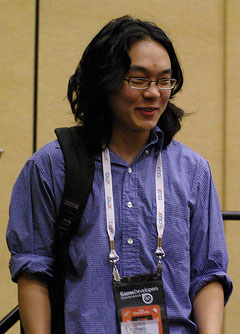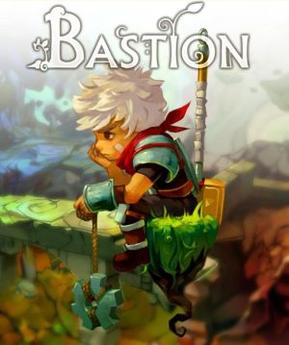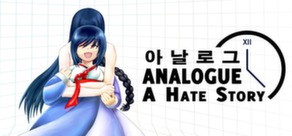
Joust is an action game developed by Williams Electronics and released in arcades in 1982. While not the first two-player cooperative video game, Joust's success and polished implementation popularized the concept. Players assume the role of knights armed with lances and mounted on large birds, who must fly around the screen and defeat enemy knights riding buzzards.

I Love Bees was an alternate reality game (ARG) that served as both a real-world experience and viral marketing campaign for the release of developer Bungie's 2004 video game Halo 2. The game was created and developed by 42 Entertainment. Many of the same personnel had previously created an ARG for the film A.I. titled The Beast. I Love Bees was commissioned by Microsoft, Halo 2's publisher and Bungie's ultimate parent company at the time.

Giants: Citizen Kabuto is a third-person shooter video game with real-time strategy elements. It was the first project for Planet Moon Studios, which consisted of former Shiny Entertainment employees who had worked on the game MDK in 1997. Giants went through four years of development before Interplay Entertainment published it on December 7, 2000, for Microsoft Windows; a Mac OS X port was published by MacPlay in 2001, and the game was also ported to the PlayStation 2 later that year.
Game Developer is a website created in 1997 that focuses on aspects of video game development. It is owned and operated by Informa and acted as the online sister publication to the print magazine Game Developer prior to the latter's closure in 2013.

Bradley R. Wardell is an American businessman, programmer, author and AI Engineer. He is the founder, president, and chief executive officer of Stardock, a software development and computer games company.
Life simulation games form a subgenre of simulation video games in which the player lives or controls one or more virtual characters. Such a game can revolve around "individuals and relationships, or it could be a simulation of an ecosystem". Other terms include artificial life game and simulated life game (SLG).

Aquaria is a side-scrolling action-adventure game designed by Alec Holowka and Derek Yu, who published the game in 2007 as an independent game company Bit Blot. The game follows Naija, an aquatic humanoid woman, as she explores the underwater world of Aquaria. Along her journey, she learns about the history of the world she inhabits as well as her own past. The gameplay focuses on a combination of swimming, singing, and combat, through which Naija can interact with the world. Her songs can move items, affect plants and animals, and change her physical appearance into other forms that have different abilities, like firing projectiles at hostile creatures, or passing through barriers inaccessible to her in her natural form.

An indie game, short for independent video game, is a video game typically created by individuals or smaller development teams without the financial and technical support of a large game publisher, in contrast to most "AAA" (triple-A) games. Because of their independence and freedom to develop, indie games often focus on innovation, experimental gameplay, and taking risks not usually afforded in AAA games. Indie games tend to be sold through digital distribution channels rather than at retail due to a lack of publisher support. The term is synonymous with that of independent music or independent film in those respective mediums.

Derek Yu is an American independent video game designer, video game artist, and blogger. Yu has designed and co-designed several award-winning games, most famously Spelunky, Aquaria, and Eternal Daughter. He is also notable as a blogger and custodian of the influential TIGSource blog/community about independent video games. He has been called an "indie superstar" and a "genuine icon" of the video game industry.

Runic Games was an American computer game developer based in Seattle. It was formed by former Flagship Studios developers in August 2008. In 2009, the company released Torchlight, a single-player action role-playing game. It was acquired by Perfect World in May 2010. They released a sequel, Torchlight II, in 2012. It was at this time the developers revealed they were no longer pursuing plans to create an MMO in the Torchlight universe.

Nelly Cootalot: Spoonbeaks Ahoy! is a point-and-click adventure game by British developer Alasdair Beckett. It was created as an indie game using the Adventure Game Studio game engine and released for free on the Internet on March 6, 2007. The game has been translated into Spanish, French, German and Polish.

Kellee Santiago is a Venezuelan American video game designer and producer. She is the co-founder and former president of thatgamecompany. Santiago was born in Caracas, Venezuela, and raised in Richmond, Virginia, where Santiago played video games from a young age and was encouraged by her software engineer father to experiment with computers. While attending New York University's Tisch School of the Arts, she became active in experimental theater, planning to pursue it after earning a master's degree in the Interactive Media Program of the School of Cinematic Arts at the University of Southern California. However, Santiago became involved in video game design and produced Cloud, a game developed by Jenova Chen and a student team. Its success sparked her and Chen to found thatgamecompany upon graduating, and she became the president.
Creeper was the first computer worm, while Reaper was the first antivirus software, designed to eliminate Creeper.

Video games are a major industry in Japan, and the country is considered one of the most influential in video gaming. Japanese game development is often identified with the golden age of video games and the country is home to many notable video game companies such as Nintendo, Sega, Taito, Bandai Namco Entertainment, Capcom, Square Enix, Konami, NEC, SNK and formerly Sony Computer Entertainment. Japan is currently the third largest video game market in the world after China and the United states.

Mighty Jill Off is a 2008 independently developed freeware platform video game designed by Anna Anthropy, with art by James Harvey and music by Andrew Toups. It stars a submissive named Jill, who has a boot fetish and is forced to climb up a tower after her Queen kicks her down it as punishment. Jill does this by jumping and slowly descending over obstacles. Jill can be defeated in one hit by these obstacles, but will return to the last check point. The game serves as an homage to the 1984 arcade game Bomb Jack and its console and computer sequel, Mighty Bomb Jack. It had follow-ups, such as Mighty Jill Off - Jill Off Harder Edition and Jill Off With One Hand. Jill made a cameo appearance in the 2010 video game Super Meat Boy as a playable character.

Bastion is an action role-playing video game developed by independent developer Supergiant Games and originally published in 2011 by Warner Bros. Interactive Entertainment. In the game, the player controls "the Kid" as he moves through floating, fantasy-themed environments and fights enemies of various types. It features a dynamic voiceover from a narrator, and is presented as a two-dimensional game with an isometric camera and a hand-painted, colorful art style. Bastion's story follows the Kid as he collects special shards of rock to power a structure, the Bastion, in the wake of an apocalyptic Calamity.

Don't Take It Personally, Babe, It Just Ain't Your Story is a 2011 visual novel by independent developer Christine Love. Intended as a spiritual sequel to Love's 2010 Digital: A Love Story, the game was developed over the course of a month and was released as a free download on April 4, 2011. Don't take it personally is a visual novel, with the majority of the plot taking place outside of the player's control except for key decisions. It follows a new high school literature teacher in 2027 over the course of a semester, with the ability to see private messages between students at any time without their knowledge. It deals with themes of privacy and relationships in the future. The game was received positively, with critics praising the interplay between the metafictional elements of the story and those of the game itself, with special acknowledgment reserved for the writing.
Blendo Games is an American independent video game development company based in Culver City, California. It was founded by Brendon Chung in 2010 and is primarily a one-person effort. Blendo Games gained more widespread exposure with the short form stand alone title Gravity Bone; the following games Flotilla and Atom Zombie Smasher were met with critical praise. The studio has also released several other games in several genres.

Analogue: A Hate Story is a visual novel created by independent designer and visual novelist Christine Love. It was created with the Ren'Py engine, and was first released for download on the author's website in February 2012. A sequel set centuries after Love's earlier work, Digital: A Love Story (2010), Analogue revolves around an unnamed investigator, who is tasked with discovering the reason for an interstellar ship's disappearance once it reappears after 600 years. The game's themes focus similarly around human/computer interaction, interpersonal relationships, and LGBT issues; but focus primarily on "transhumanism, traditional marriage, loneliness and cosplay."

Christine Love is a Canadian independent visual novel writer best known for her original works Digital: A Love Story; don't take it personally, babe, it just ain't your story; Analogue: A Hate Story; and Ladykiller in a Bind. Love began creating visual novels while in university, making a few small games, visual novels, and pieces of written fiction before coming into prominence with the release of Digital in 2010. She went on to work on Love and Order, a dating simulation by Italian video game designer Celso Riva, as well as don't take it personally, both released in 2011. Her first commercial project on which she was the primary developer is Analogue, released in February 2012; Love dropped out of her English degree during its development, and is currently a full-time game developer. She released an expansion to the game, titled Hate Plus, in 2013. In October 2016, she released Ladykiller in a Bind. Her latest project is Get in the Car, Loser!, a road trip role-playing game that was released on 21 September 2021.

















